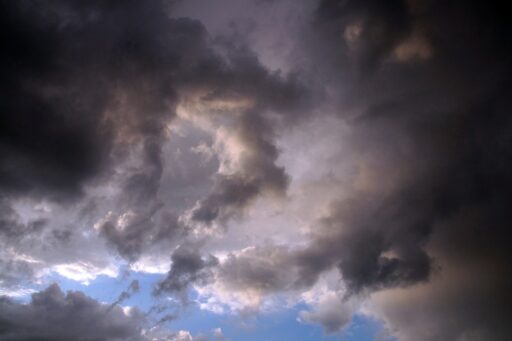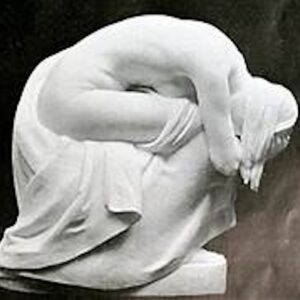American authors have always been deeply interested in American places, and so American authors of European descent have always suffered from a guilty conscience and a crisis of legitimacy. The source of the problem is obvious, and that very obviousness is part of the problem: the dominant culture of the Americas came from Europe, it came by way of the conquest of man (Indigenous, African) and nature, and it did so in a historical period which is difficult to mythologize in the proper sense, because we know too much about it. The nineteenth-century historian Francis Parkman, a member of the Bostonian elite, put it this way at the opening of his epic France and England in North America: “The springs of American civilization, unlike those of the elder world, lie revealed in the clear light of History.” That clear light is the problem. To riff on a line by T S Eliot: After such knowledge, what mythology?
But a writer needs mythology. A writer cares about this world first, but he cares about representing it by means of signs and symbols which reveal this world to be both itself and more than itself: a fantasy or, better yet, a theophany. Some New World writers have not let the clear light of history stop them from building a new mythology. Though most people would not call it that, I would say that Thoreau was embarked on this task, teaching himself, especially in his posthumous books, to create the primary material for a later American mythos.
Today, I will tell you about another writer who mythologized in a very different way, William Gilbert (1763-1824). He was the son of a Methodist slave-owning planter on Antigua, a fact which shaped him profoundly. The young Gilbert went to England, where he got into esoterica and magic and published about it. He fell in with Coleridge, Wordsworth,and Southey in Bristol, though he seemed strange to them, and for a time held their esteem until he went completely mad.
In the 1790s Gilbert wrote two poems, published together, which are still read (very rarely) today: “The Hurricane” and “A Solitary Effusion,” the former of 441 lines, the latter containing 107 lines. The poems are set respectively in Antigua and in Britain. “The Hurricane” comes with voluminous notes which Gilbert never finished, in which he lays out his complex esoteric philosophy. I’m not persuaded by the whole of that philosophy (or “theosophy” as he calls it), but in the introduction to the poems, Gilbert states some principles, of which I find the following fruitful:
“That all Countries have a specific Mind, or determinable principle.”
“That a Country is subdued, when, its mind or life, its prince according to Daniel, or its genius according to modern Easterns, or its principle according to Europeans, is either supprest, destroyed or chemically combined with that of a foreign country in a form, that leaves the foreign property dominant; and not till then. And this cannot ensue but upon Suicide, upon a previous abandonment on the part of a nation, of its own principle.”
“That in the European subjugation of America, the American Mind or Life only suffered under a powerful affusion of the European; and, that as the solution proceeds it acquires a stronger and stronger tincture of the Subject, till at length that, which was first subdued, assumes an absolute, inexpugnable predominancy…”
“This survival of American principle, I represent by asserting the survival of her spirits, under the name of the Children of the Sun, according to the Yncas; or The Sons of the Virgin Light; while their bodies, or their appearance in the world sank to ocean; that is, were destroyed by Europe, who had the power of the ocean and corresponds thereto. The Resurrection of their Bodies is the Reappearance in the world of persons enlivened by their Life or Spirit, actuated by their principles.”
Gilbert believed that the subjugated spirits of Africa and America were reappearing in the world in the form of the American and then the French Revolutions. The physical like the metaphysical hurricane, as it were, originates off the shore of Africa, crosses the Atlantic to ravage America, then crosses back towards Europe.
In “The Hurricane” the poet says of the revenant spirits of Africa and America:
Victors on Europe, witherers of her might! For theirs are Nature’s powers; Elemental strength Springs in their nerves, to artificial or Cold Europe’s man unknown…
And they will respond:
… Bold and more quick The COUNTERVAILING Discords now We sound And ply the terrible Antistrophe, With fearful Justice and closed Harmony Full on Europe, who ghastly sinks to Hell!
“The Genius of the West is High,” the poet declares with approval, “and rides / Swiftly on the bold and regulated / Pinion of the Atlantic Wind.”
In the accompanying “Solitary Effusion,” the poet, now in England, converses with the presences of ancient Druids. “Which age,” he asks them, “is vile, the Gothic, or Refined?” By “Gothic” we should probably understand the entire pre-modern history of Britain. To understand the Druids’ reply, we must read “Art” here as something more like technique, with its dual connotation of technology and technocracy:
‘That, which the Heart lays waste!’ I hear exclaimed In choral harmony of Fair and Great. ‘Ah! What avails to us, pure Nature’s Spirits! The managed body and the managed tongue, Which chaunts no concord to soft Nature’s notes? The managed foot, that dreads our shady brakes, And shuns our holiest, wildest, deepest walks? We give no music to the high-trained ear: Our concert loved is NATURE’s voice Divine, And GOD’s and LOVE’s; One unison, that sounds Through every branch, and trembles in each leaf. Here oft, when man awakes not, hear we sweet The voice of GOD conversing in the Calm, And preaching of his inmost works Himself… ‘Twas not the Warrior’s gleam, that thinned our shades And harshly grated human Discords there: He passed unheeded when the storm was o’er, And left no measured ravage: Not the man Of boisterous Nature was our foe; that man Was Nature still, and her behests obeyed. The Man of Art, is NATURE’s foe and man’s And God’s. His desolating axe wastes all, That speaks of GOD Creator of the Land; And marks it for his own. The ground not then Yields and impartial feast to man, to fowl, And all the Family of GOD; but trained To furnish famine, mocks at GOD and all. No shades are holy, nor are rural scenes. The Man of Art proscribes all Nature…
I have written here before, invoking Hölderlin, about the animism and the “repaganized Christianity” I hope for, and I think William Gilbert had a vision of the divine similar to, if wilder than, that of his German brother in poetic madness. The bizarre, troubled and ecstatic Englishman, whom I stumbled over many years ago as a disconsolate graduate student, has now helped me fashion a North American fantasy and even to write a thesis on environmental ethics and law. May it be it a lesson to writers: Persist, although you are half mad, for you never know whom you may inspire.
Jonathan Geltner lives in Ann Arbor MI with his wife and two sons. His translation of Paul Claudel’s Five Great Odes is available from Angelico Press and a novel, Absolute Music, is available from Slant. If you enjoy his posts at Close Reading, check out his new Substack, Romance and Apocalypse, for more frequent and in-depth essays on the places where literature and other arts meet religious ideas and experience.





